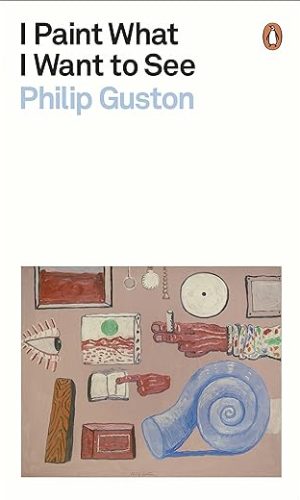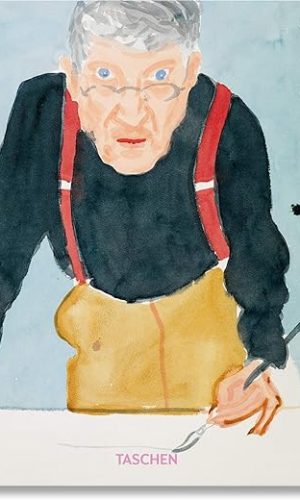Femina: The instant Sunday Times bestseller – A New History of the Middle Ages, Through the Women Written Out of It
£9.00£10.40 (-13%)
THE INSTANT SUNDAY TIMES BESTSELLER
LONGLISTED FOR THE CUNDILL HISTORY PRIZE
‘Revelatory’ GUARDIAN
‘A firecracker somehow captured between two covers’ LUCY WORSLEY
An instant bestseller and one of the most celebrated history books of the year, Femina reveals the power and influence of medieval women who have been written out of our history. From royalty and religion to fame and fury, see the medieval world – and the women erased from it – with fresh eyes.
‘Absolutely brilliant and highly recommended’ CAITLIN MORAN
‘Femina is a ground-breaking history of the Middle Ages’ SIMON SEBAG MONTEFIORE
Read more
Additional information
| Publisher | 1st edition (30 Mar. 2023), WH Allen |
|---|---|
| Language | English |
| Paperback | 464 pages |
| ISBN-10 | 0753558262 |
| ISBN-13 | 978-0753558263 |
| Dimensions | 12.6 x 2.7 x 19.8 cm |










by Christopher Hodder
The stories in here are all individually interesting, but the book lacks a coherent story and just meanders from “isn’t this lady impressive?” to “isn’t this lady impressive?” It is well-written and well-researched, but could perhaps have done with some tighter editing. Sorry!
by R. E. Loten
I love the wave of new examinations of the past. I’m fascinated by the idea of giving a voice to those who have for so long, been almost written out of history and I was attracted to this book because it promised to do exactly that. I’m also a huge fan of Janina Ramirez’ TV work, having been introduced to it via a documentary about Sutton Hoo, which my youngest was obsessed with watching, so I began reading this book with a high level of expectation.
I was not disappointed.
Throughout, I kept stopping to tell my husband about some interesting fact that had been mentioned. I’d never heard of the Loftus Princess, but the comparisons between her burial and the one at Sutton Hoo, mean that I’m keen to learn more about her. I’d been vaguely aware of the status of women in the Viking world, thanks to a Horrible Histories sketch, particularly with regards to domestic violence. However, reading it made me wonder why it is that modern society seems to have regressed so far in this area. If societies at the time could give women autonomy to leave such relationships, why do we get it so wrong today?
The standout story however, is that of Hildegard of Bingen. Nun, musician, visionary, her book was smuggled out of Soviet occupied Germany in 1948, thanks to the bravery of two women. A fact which seems incredibly fitting. I got very excited when she was mentioned in a children’s TV programme I was watching with my six year old
The final few pages are interesting in their own right though. Dr Ramirez discusses issues of gender and sexuality – a very current topic in society – through the lens of historical figures. It was a fascinating insight into the topic. Again, there was a Horrible Histories related fact that caught my eye – the Roman Emperor Elagabalus apparently liked to be referred to by female pronouns and allegedly discussed gender reassignment surgery.
This is a fascinating insight into the lives of women who deserve to be far more well known than they are and it is my sincere hope that this will not be the last book to give such people a voice.
This is well worth a read.
by Gary S.
Janina’s writing style makes what could be a dry and academic book into an enjoyable read. Her enthusiasm for her subject shines through her works as she explores an alternative view of mediaeval history through the eyes of the often neglected women of the period.
She has obviously carried out extensive research to make her argument (the source notes and bibliography come to nearly 100 pages) and refreshingly she admits that the work is an argument rather than a definite history, and this enables her to introduce themes relevant to contemporary society that can be contentious such as gender identity and misogyny.
A considered work in which Janina’s enthusiasm shines throughout.
by V E C Nicholas
Dr Janina is one of my favourite historians, and introduced me to the work of Julian of Norwich, which in quite convinced got me through a nasty ICU spell in 2021. As a trans man who loves history I was anxious about this book, because there is a dominant movement of transphobia running through the academy of late.
I needn’t have been
Femina is an absolute tour de force, presenting medieval women’s lives in an accessible text that is no less academically rigorous for that same accessibility. The citations are extensive and informative, each woman’s life is set in both the discovery of her in modern times as it is in the context of her own life, and Dr J makes extensively the point that the view we have of the medieval is inaccurately sanitised in gendered, racial and social class terms. Medieval London was pretty much as diverse as it is now. People who were gender non-confirming existed then as they do now.
Femina is a magnificent book, which highlights so many of the ways women have been marginalised through recent years and emphasises that misogyny hasn’t actually changed as much as we think it has. It’s an important work that shows the need to interrogate what we are taught and what we believe, and which allows us to see that new technologies, far from obscuring the past, allow us to confirm what we have lost in received knowledge, which gives us a clearer path into the future.
by jazzy2
I was looking forward to reading and learning about the women whose stories had always been overlooked in history. Most of the women I had already heard of from other sources. I enjoyed the book but did think that, if all the background material, opinions and conjectures had been left out, the material was a little thin. There is only a limited amount of information about these women, it just seems to me that it’s how it’s dressed up which makes all the difference. The book is well researched and well written. I admire Janina Ramirez for her enthusiasm and personality when presenting her TV shows which are always eminently watchable, but feel the book just falls short of being worth 5 stars.
by Amazonian Customer
In Femina, Janina Ramirez gives us a potted history of the middle ages from the point of view of some of the women of the time.
Detailed research, from grave goods to the words of the women themselves, underpins these fascinating stories. Most of the women featured are from wealthy and powerful backgrounds. Some are from the ruling elite, even titled king and ruling in their own right. Others chose a life of religious contemplation and wielded the influence and power that comes from being God’s representative on earth. But all are many things, diplomats, leaders, warriors and artists. The one thing they all have in common however, is that they are bypassed by our conventional histories, overlooked in favour of the stories of their male contemporaries.
Forgotten, ignored and often deliberately written out of history, these women deserve to be heard and Janina Ramirez has rescued them from obscurity for our benefit.